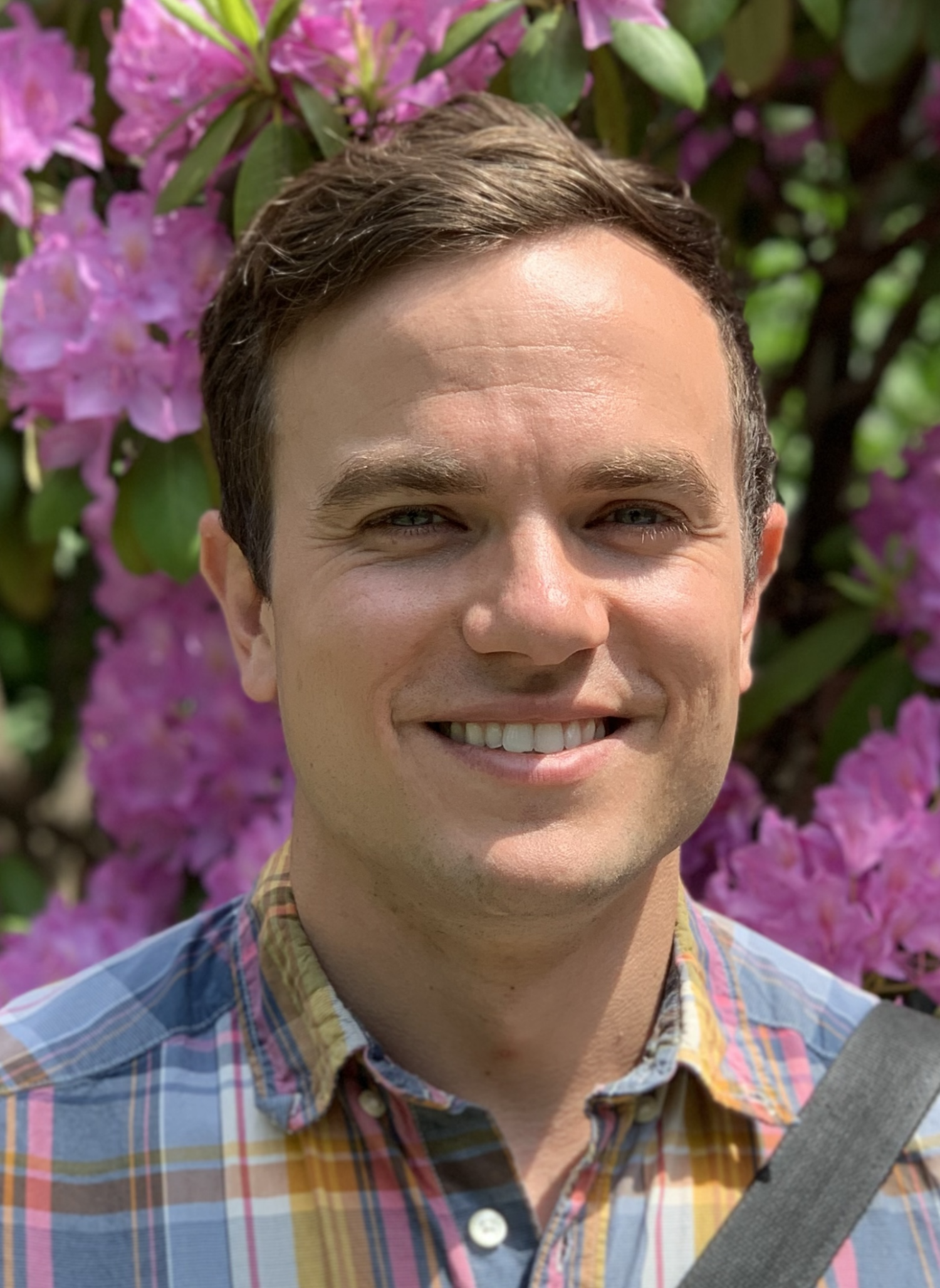Kelvin Bates
- Assistant Professor
- Air Quality

Research Interests
Field observations of organic gases, mass spectrometry, environmental chamber experiments, atmospheric chemistry modeling, trace gas oxidation mechanism development
Our research combines experimental and modeling tools to identify the ways in which volatile organic compounds (VOCs) in the atmosphere react to produce harmful air pollutants like ozone and particles, and to quantify the impacts of these pollutants on human health and global climate. We develop instruments like mass spectrometers to detect a wide range of VOCs with high sensitivity, and use these instruments in targeted environmental chamber experiments to diagnose the reaction rates and products of VOCs in the atmosphere. We also partner with NOAA, NASA, and others to bring our instruments into the field and make ambient observations from aircraft, stationary sites, and vehicles. We then use atmospheric models like GEOS-Chem and WRF-Chem to understand the importance of the chemicals and reactions we observe in chamber studies and the ambient atmosphere on regional to global scales, and to quantify their impacts on air pollution, human health, and the global climate.
Societal Impact
By better understanding the chemical processes that control ozone and particle formation in the atmosphere, we help determine the steps that individuals and institutions can take to mitigate air pollution.
Teaching
- MCEN 1024 - Chemistry for Energy & Material Science - Fall 2025, Fall 2024
- MCEN 4228/5228 - Climate Engineering - Fall 2025, Spring 2025
Background
Dr. Bates received his PhD in chemistry at Caltech and his BS in chemistry and economics from Davidson College. Prior to his appointment at CU, he was a postdoctoral fellow in the Atmospheric Chemistry Modeling Group at Harvard University, a project scientist at the University of California Davis in experimental atmospheric chemistry, and a research scientist at the NOAA chemical sciences lab in Boulder, during which he deployed mass spectrometers aboard aircraft and other mobile platforms on the AEROMMA and USOS field campaigns.
Select Publications
- Bates, K. H., Evans, M. J., Henderson, B. H., and Jacob, D. J. "Impacts of updated rate constants on tropospheric composition." Geosci. Model Dev., 17 (4), 1511-1524, 2024.
- Bates, K. H., Jacob, D. J., Cope, J. D., Chen, X., Millet, D. B., and Nguyen, T. B. "Aqueous oxidation of isoprene-derived organic aerosol species as a source of atmospheric formic and acetic acids." Environ. Sci.: Atmos., 3, 1651-1664, 2023.
- Cope, J. D., Bates, K. H., Tran, L. N., Abellar, K. A., and Nguyen, T. B. "Sulfur radical formation from the tropospheric irradiation of aqueous sulfate aerosols." Proc. Nat’l. Acad. Sci., 119 (36) e2202857119, 2022.
- Bates, K. H., Burke, G. J. P., Cope, J. D., and Nguyen, T. B. "Secondary organic aerosol and organic nitrogen yields from the nitrate radical (NO3) oxidation of alpha-pinene from various RO2 fates." Atmos. Chem. Phys., 22, 1467-1482, 2022.
- Dovrou, E., Bates, K. H., Moch, J. M., Mickley, L. J., Jacob, D. J., and Keutsch, F. N. "Catalytic role of formaldehyde in particulate matter formation." Proc. Nat’l. Acad. Sci., 119 (6), e2113265119; 2022.
Select Awards
- 2025 - "Best Should Teach" Gold Award - CU Boulder Center for Teaching & Learning
- 2021 - UBC Early Career Invited Lecture Award - University of British Columbia
- 2017 - Climate & Global Change Postdoctoral Fellowship - NOAA
- 2017 - Center for the Environment Postdoctoral Fellowship - Harvard University
- 2014 - NSF Graduate Research Fellowship
Select Professional Activities
- 2024 - present: Editor, Atmospheric Chemistry & Physics
- 2024 - present: Co-chair, Chemistry Working Group, GEOS-Chem model steering committee
- 2024 - present: University coordinating partner, EPA-NOAA CRACMM collaboration team
- 2025 - present: Organizer, CU Boulder Environmental Engineering Seminar Series

